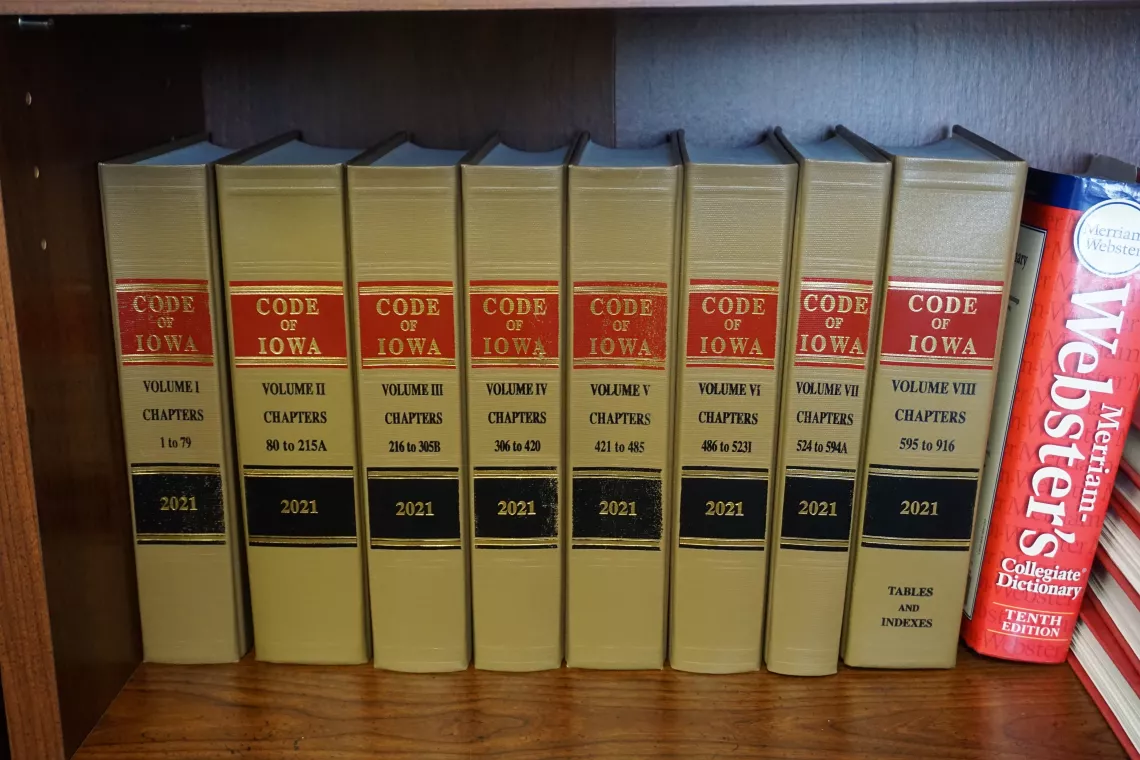Constitutional Challenges of Iowa Laws
Two bills are moving through the legislature that address legal challenges to legislation:
- The first bill – SF2171 – would allow the majority and minority leaders of both the Iowa House and Iowa Senate to file amicus curiae briefs (commonly called friend of the court briefs) in any appeal to the Iowa Supreme Court challenging the constitutionality of legislation. Other legislators would be able to sign onto the amicus brief. A legislator would be allowed to sign onto only one amicus brief. Unlike when other parties want to file an amicus brief, they have to request permission from the court or receive consent from the entities involved in the appeal, the legislators would not be required to request permission or receive consent. Update: The governor signed this bill.
- The second bill – SF2275 – would require the appellant (the party appealing a court ruling to the Iowa Supreme Court) to send a copy of the pleading, motion, or petition that raises the constitutional challenge to the chief clerk of the House of Representatives and to the Secretary of the Senate. This would be done via personal service or restricted certified mail. Once served, the clerk or secretary would be required to send the notice to the majority and minority leaders of each chamber. Update: The governor signed this bill.
In the last few years, the Iowa legislature has passed a number of bills that have faced constitutional challenges. In a rather embarrassing case, the Supreme Court justices criticized the Senators in how they handled legislation and debate allowing right of first refusal for building transmission lines. (LS Power Midcontinent, LLC v. State, Iowa Supreme Court Case 21-0696)
At the appeal level, no new evidence can be offered. Judges can take notice of new court decisions in other cases. But if something (such as data, evidence, exhibits) was not part of the underlying case, it cannot be added as evidence during the appeal.
Complicating things is a recent Iowa Supreme Court decision that confirmed that the legislature has a privilege that protects legislators from litigants who are compelling document production, including communication with third parties. (Senator Roby Smith, et al. v Iowa District Court for Polk County, Iowa Supreme Court Case 22-0401)
Furthermore, the leaders of the House and Senate are unable to speak about the legislative intent on behalf of the other legislators. (AFSME Iowa Council 61, et al. v State of Iowa Public Employment Relations Board, Iowa Supreme Court Case 17-1841)
What all of this means is that lower court litigants cannot obtain discovery materials from legislators. Appeals courts cannot accept new evidence. Therefore, any attempt to use the amicus process to add new evidence is misguided.
Parties should be able to challenge constitutionality of issues under the current procedures.
Every year, a number of bills are introduced that appear to violation the Iowa Constitution, and even the US Constitution. If the legislators would work on toward passing bills that fall within the bounds of our state and federal constitutions, this would not be an issue.
Both of these bills are unnecessary.
